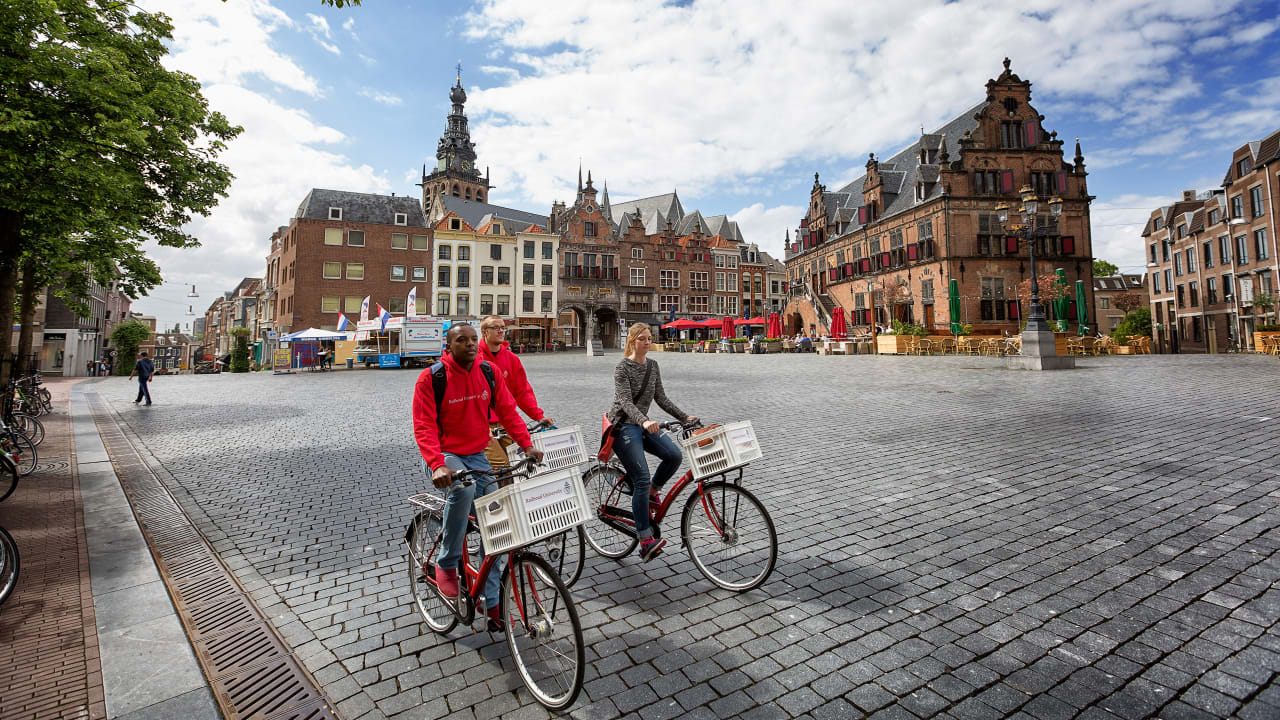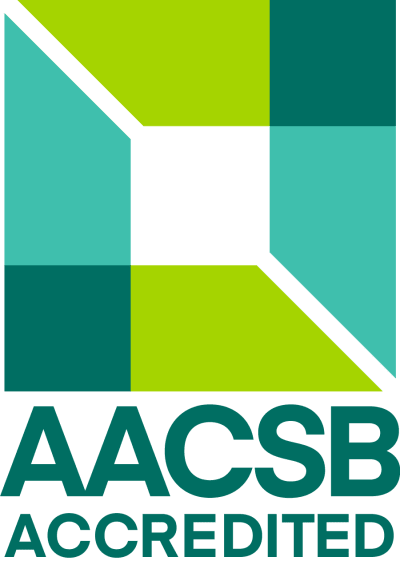Nijmegen, a student-friendly city
Radboud University is situated in Nijmegen - a true university city with 165 000 inhabitants, 30 000 of whom are students. Though it is the oldest city in The Netherlands, dating back to Roman times, Nijmegen has a young and lively atmosphere. There are plenty of cultural activities: from numerous museums, galleries and cinemas to events such as the International Four Days Marches with the International Summer Festival, the Limburg Medieval Festival, the Samba and Salsa Festival, Rockin’ Park Festival and much more. You can also relax at our city beach next to the river Waal, do some vintage shopping or explore a wide range of bars, cafes and restaurants. Above all, it is a safe and friendly place to live and study.
Cost of living
The cost of living in Nijmegen is relatively low compared to Amsterdam or other cities in Western Europe. Expect to spend a minimum of €800 per month on living expenses. Furnished student accommodation costs between €360 and €450 including gas, electricity and internet. Count on €400 for food, clothing, personal care and travelling and 30 euros for your phone bill. Books and photocopies cost approximately €200 to €300 per semester.
Modern green campus
With state-of-the-art facilities housed in modern architecture at your fingertips, Radboud University provides an ideal productive atmosphere for both education and research. Our campus is also a perfect place for rest and relaxation. The university restaurant De Refter houses six different food counters: from Asian and Italian cuisine to exclusively vegan and organic dishes. Another cool option to unwind is to check out our famous Radboud Sports Center with more than 80 sports available. Students also enjoy chilling at campus green glades, simply admiring the beauty of nature around or having a picnic. You can get your groceries right here on campus in one of the shops.
With its beautiful green campus, set close to the centre of Nijmegen, students enjoy a rich learning environment. Radboud University regularly connects with surrounding organisations to create a bridge between local and international companies that give our students the best opportunities during and after their studies.
No matter what you are looking for, you will find it on campus. There are libraries, state of the art study areas, cafes and a convenience store located directly on campus, as well as student support offices, and career offices providing invaluable services to Radboud University students. Radboud University also has a Green Office on campus – where students can learn more about exciting green initiatives that are on offer.
Radboud University is home to one of The Netherlands’ best university sports centres, where you will find more than 80 different sports on offer, as well as a gym and outdoor courts for playing tennis, squash, soccer, beach volleyball, hockey and a swimming pool (located off campus). The possibilities are endless. At Radboud University you can also join a sport association, or just participate at your leisure in sport classes such as yoga, spinning, aerobics and many more!
Nijmegen is an old city with a young vibe, and a great environment for students to become tomorrow’s leaders. Most students who study at Radboud University live in student complexes and student houses, share an apartment or rent a room in a private house. These accommodations are close to campus, and in the city of Nijmegen.
Radboud University offers a unique service for its international students whereby all international students (with the exception of degree-seeking students living in certain areas of Germany) can request assistance from the Admissions Office in finding accommodation for their first year of study.
Accommodation that is offered to students consist of private rooms, but usually the kitchen and bathroom facilities are shared. The large majority of the accommodation offered is mixed accommodation, which means men and women live in the same corridor and (if applicable) share the facilities. There are a few women-only corridors offered as well. The rent for these rooms can run up to €500 per month or more. However, rental prices of most rooms are between €370 and €470 per month.
It is important to research your accommodation options well in advance of your studies.
Radboud University is also a partner of HousingAnywhere.com, the international student-to-student housing platform. Students who are coming from abroad to Nijmegen can also find & book a student room on www.HousingAnywhere.com. The rooms on this platform are offered by students that go abroad for a study semester, exchange, Erasmus or internship.
For more information about accommodation, please check the university website.







